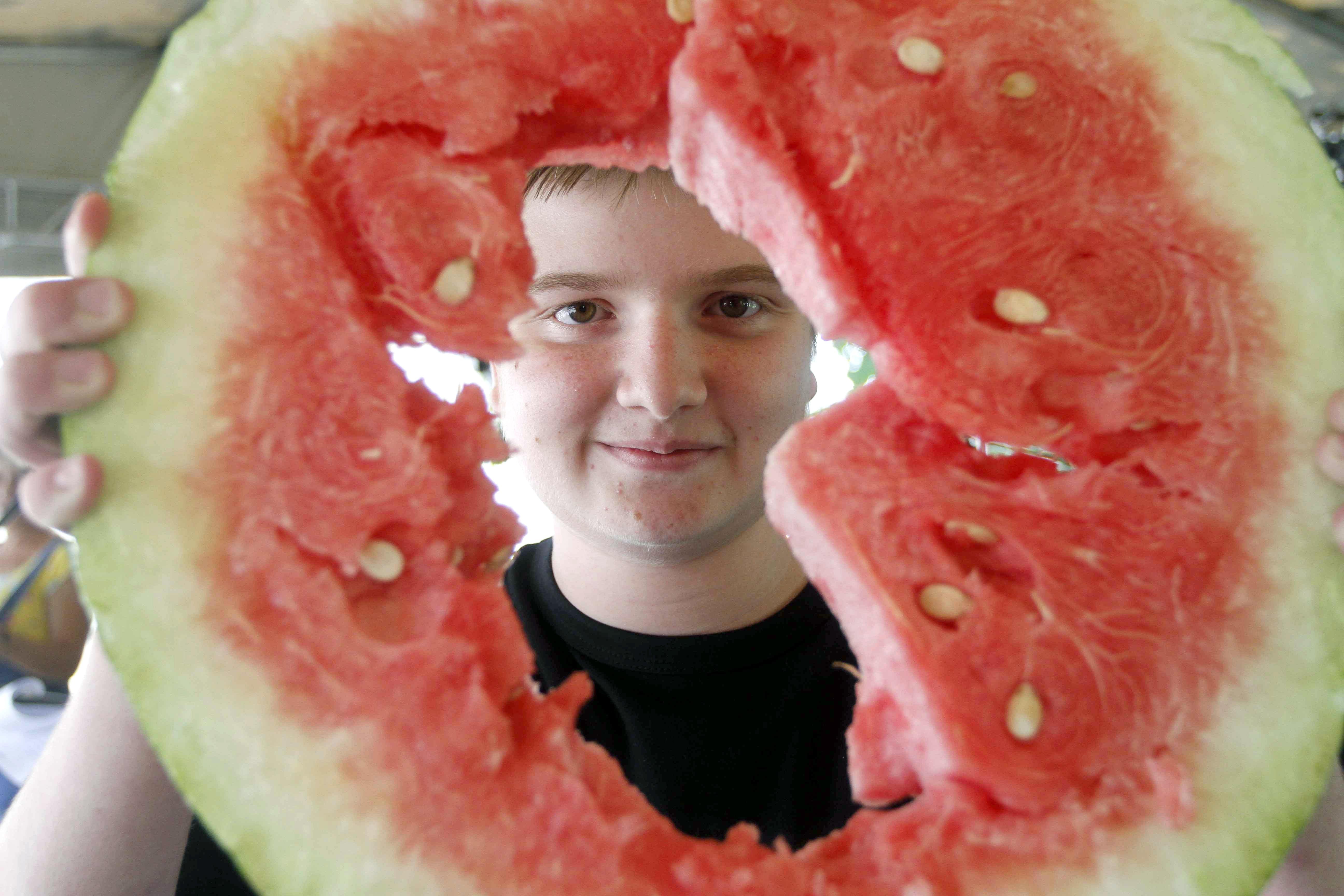I suppose I just have to accept the fact that the foodies will leave no corner of America untouched, that no amount of Portlandia riffs or biting ethical takedowns will deter them from conquering even the youngest of minds. Now we learn from the New York Times that at Camp Ballibay, in the cutely named Camptown, Pa., serves among its regular dinner rotations “white rice moistened with leeks” and “half moon sliced onions and chopped celery, both tossed in sesame oil and slow roasted.” The camp has a chef, not a cook, and the children forgo s’mores, which in my mind is a first order sacrifice, for “grilled fruit kebabs drizzled with a balsamic maple syrup reduction.”
I get it. The old camp fare of pizza and pasta and chicken nuggets isn’t going to cut it anymore. Michael Pollan has taught us too much about healthy eating for us to look at such an old-school menu with anything but horror. I, as much as the next parent, encourage my kids to eat lots of fruit and vegetables and fast food plays a very small part in our lives. By this point they look forward to summer farmer’s markets and stuff their faces full of peaches before we’ve loaded the food in the trunk. Plus there is a genuine obesity epidemic in America and it’s nice that camps are trying to address that.
But are these new gourmet camp menus really about healthy eating? You have to read deep in the story to appreciate the full extent of adult control dictating the children’s consumption. “There’s nothing wrong with having a warm chocolate chip cookie before you go to bed” one camp owner said. (Note the “warm”—these guys even talk like menus.) “But we believe in portion control, so it’s a 1.5 ounce cookie and they just get one.” The camps apparently open care packages in the main office and confiscate candy bars. The camps, I guess are trying to separate the ideas of dessert and fun and give the kids other ideas about what constitutes relaxation and pleasure. But it sounds an awful lot like shame. One girl confessed to hiding Twix bars under her bed, which is the kind of thing girls at fat camp do.
Having a community garden at camp would be nice. Feeding the kids lots of fruits and vegetables with their dinners, maybe some grilled chicken, also nice. And even teaching them something about healthy cooking would also be great. But making words like “moistened” and “half moon” and “balsamic maple syrup reduction” part of their daily vernacular is something else entirely. This language only serves to induct them into an upper class elitism about what dinner should look like. It reifies food and makes it a passport into a certain kind of life. Parents, you’ve all been there, I’m sure. You’re going along feeding your child organic fruit roll ups or hand-churned ice cream or whatever and then she comes across a Twinkie one day, points at it with horror and yells “Mom, look at all the artificial ingredients!” And suddenly you realize you’ve trained your child to disdain the way 7/10 of America lives. Or to put it more simply, you’ve brought up a snob.
Just before July Fourth I was standing in line at the Whole Foods butcher counter waiting to buy my free range, organic, etc. etc. meat when I overheard this conversation between a father and his daughter, who looked about 8.
Dad: Go ahead and ask him, honey. It’s important.
Daughter: Excuse me, sir, are these hot dogs grass fed?
Are these hot dogs grass-fed? They’re hot dogs for God’s sake. First I laughed and then I wondered what this guy behind the counter thinks about having to deal with 8-year-olds asking him questions like this all day.
Harvard political scientist Robert Putnam’s next line of research has to do with the growing class divide between children. College educated parents are now spending more time with their children, reading more to them, and enrolling them in ever more activities. This has made what was once a modest divide between children into a “chasm,” David Brooks writes. The next generation of kids will have less in common, less to talk about than ever before. We could help by not adding food to the list of things that are such bright class markers. It’s fabulous to teach your kids about healthy eating, but maybe find a more class neutral way to do it. Kids should be allowed to just eat hot dogs on the Fourth of July without policing where they came from, and everyone knows what a peach is.
